From forecasting orders to flagging potential shoplifters, artificial intelligence (AI) has entered the aisles of British convenience stores, forcing retailers to upgrade and adapt but also to weigh its promise of progress against the price of trust.
For years, convenience stores were run with intuition and the fruits of experience.
Pearls of wisdom passed on from generations and real-world experience gained behind the till gave retailers a kind of sixth sense, a different kind of intelligence that helped them navigate supply issues, compliance and safety, and enabled shrewd guesses at changing consumer habits.
Now, a different kind of intelligence is entering the store, one powered by algorithms, sensors, and silent cameras that claim to see what human eyes might miss.
Convenience retail might look old-school, but innovation has never been far behind. Today, a wave of AI tools claims to fix almost every pain point the retailer ever faced.
Like, new-age AI-powered electronic point of sale (EPOS) systems that trigger automatic reorders when stock levels run low, removing the need for manual checks. Tools from companies like Trax use AI image recognition on shelf cameras to monitor product availability and ensure proper placement in real time.
MHouse claims to analyse historical sales data, seasonal trends, and even external factors such as weather or local events to forecast demand accurately, ensuring the right products are stocked at the right time.
Voice-driven assistants like Vox act as Siri for retail, letting store owners ask for pricing, promotions or range advice and receiving instant, evidence-based suggestions.
Some classic examples are seen being used by bigger cousins as well. Sainsbury’s has invested in AI forecasting as part of its £1 billion cost-saving plan. Waitrose uses AI to schedule deliveries and track food trends; even Tesco now relies on AI to optimise deliveries and inform buying decisions.
For independents, the same tech is starting to trickle down, offering a chance to level the playing field without the corporate budget.
Real time users and early adapters
In south London, retailer Benedict Selvaratnam has started to rely heavily on AI.
He shared with Asian Trader, “We have started using a few AI tools at Freshfields Market to make day-to-day operations a bit sharper.
“For buying and stock, we use forecasting models built off our EPOS data provided by Epositive from Nisa retail.
"They help predict demand for key lines by factoring in seasons, events and even weather trends, so our orders are more accurate and shelves stay full.
“We also run pricing and range reviews through AI to highlight slow movers and suggest better-value substitutes.
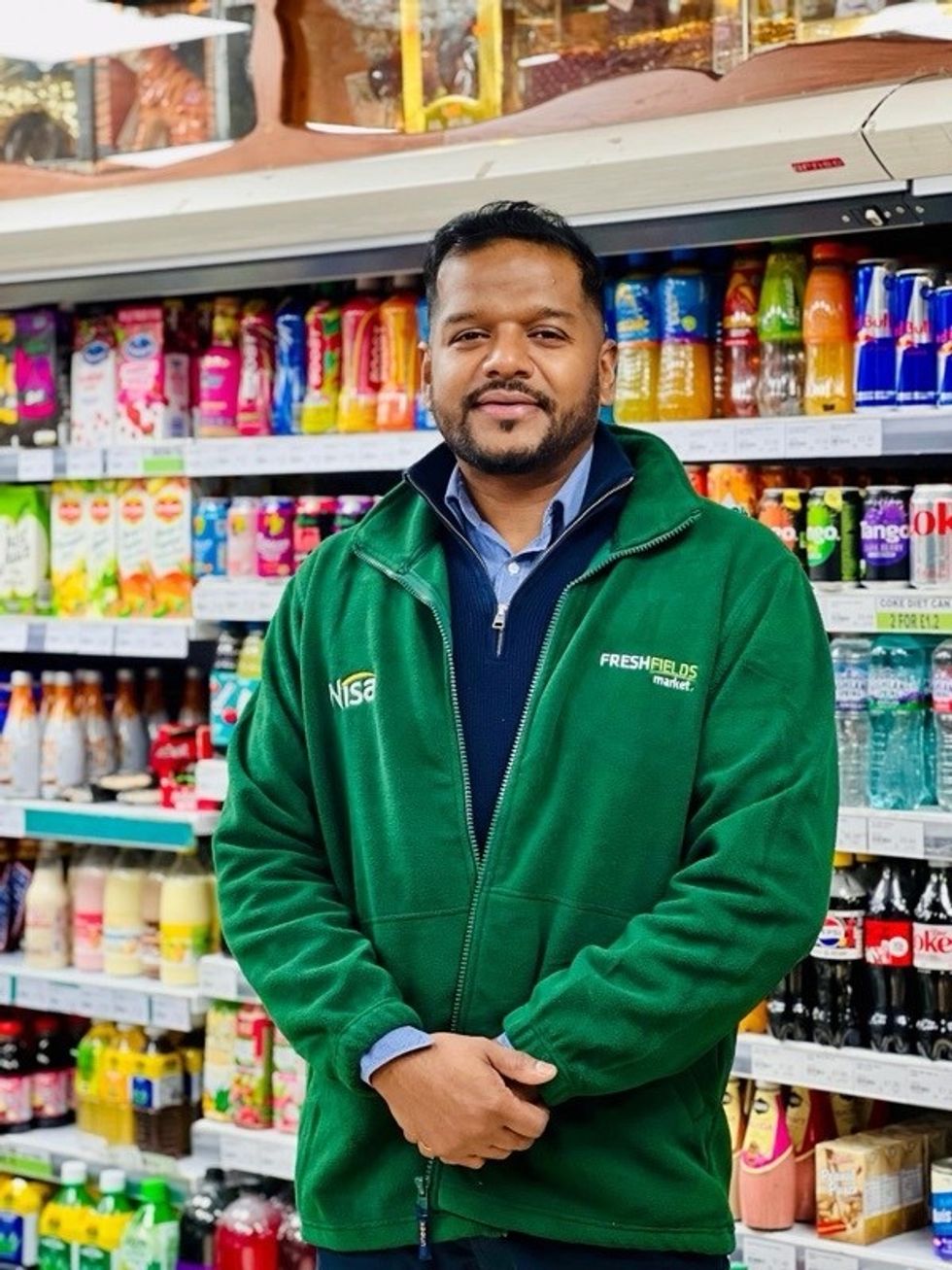 Retailer Benedict SelvaratnamRetailer Benedict Selvaratnam
Retailer Benedict SelvaratnamRetailer Benedict Selvaratnam
“Customer insight has been another plus, we can see which products are often bought together and use that for better displays or promotions. AI also pulls daily sales summaries so the team gets a quick view of what’s performing or running low,” Selvaratnam said.
For Manchester-based One Stop retailer Priyesh Vekaria, AI is now very much an integral part of how he operates his business.
"We use a range of artificial intelligence-driven systems across multiple aspects of our store operations, and they have become central to how we manage security, compliance, availability, and customer engagement.
“These are not surface-level tools. They are fully integrated into our operational model, and the impact has been significant.
“The single biggest game changer has been the smart audio network. This system allows us to run bespoke audio across the store, from branded promotional campaigns to retailer messaging and security deterrents, all controlled through a single dashboard,” Vekaria told Asian Trader.
AI also helps him identify fast-moving lines, forecast demand surges and monitor promotions. Even age-restricted sales are assisted by AI at the till.
“It supports compliance quickly and accurately, especially during late-night trading,” he adds.

Interestingly, no area of retail has embraced AI faster than security. As shop theft and violence surge across the UK, demand for smart surveillance has exploded.
AI-enabled systems now watch live CCTV feeds, detect concealment, scan body language and alert staff in real time. Names like Veesion, x-Hoppers and Retail AI are fast becoming familiar.
Vekaria vouches for Retail AI, both for in-store audio as well as anti-theft alerts.
He said, “On the security front, our store uses Retail AI, which uses behavioural analysis, and automatic number plate recognition to identify suspicious activity in real time.
“When it detects potential theft, it triggers smart audio deterrents and logs the incident with multi-angle video evidence, including footage of the theft, discarded stock, and offender exit.
“Evidence packs can be uploaded directly to the police, which has drastically reduced the manual workload for the team.”
Meanwhile in Glasgow, retailer Raheem Ali Razaq also feels that AI-enabled technology like Retail AI can be a boon for his decades-old store, Ali’s Nisa Royston.
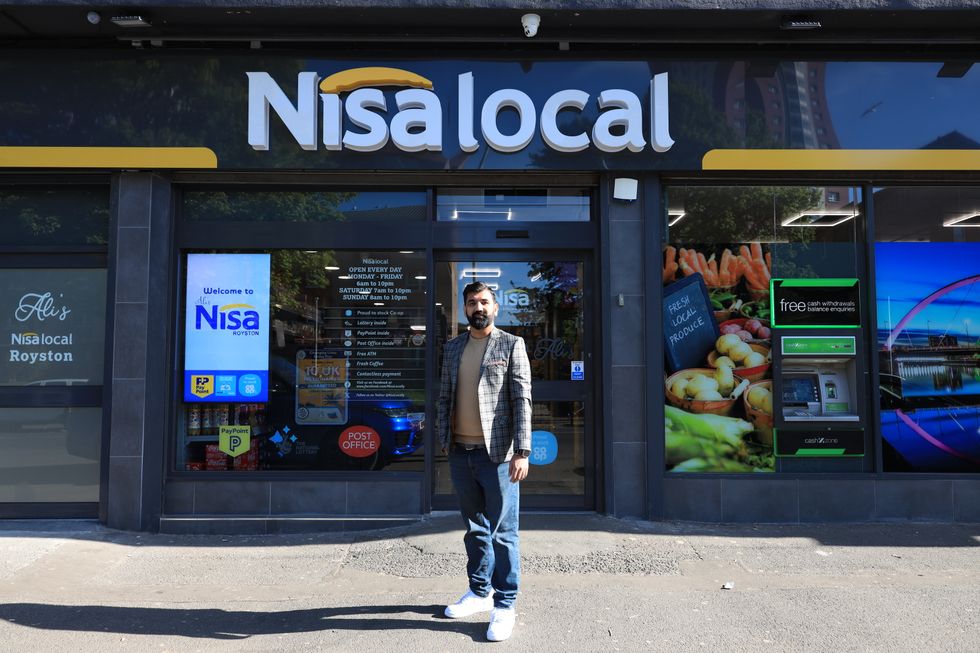
“The introduction of AI technology has brought significant benefits to our business. It has made our store more secure, reduced theft, and helped us foster a safer and more welcoming atmosphere for both staff and customers.
"Our staff does not have to spend most of their time on monitoring and security, and eventually, they can focus more on customer service and operational tasks.
“There was, of course, a cost involved in setting it up, but it’s already paid off through reduced losses and smoother day-to-day running," Razaq told Asian Trader.
Meanwhile in Dartford, retailer Nishi Patel is also testing Retail AI but admits it’s still “work in progress.”
“It does work, it just needs a bit of management,” he said. “Give it another few months, it is going to be working perfectly in the shop. It comes with music and advertising, which is great.”
“It’s more about the customers knowing that we have something like this in the shop as it acts as a deterrent,” Nishi told Asian Trader.
Words of caution
From predictive ordering to anti-theft analytics, AI’s promise is dazzling. But its pitfalls are equally real.
A recent GlobalData survey of 2,000 UK shoppers found that 35 per cent feel uncomfortable with facial recognition, while 26 per cent dislike VAR-style tracking cameras in the store.
According to Aliyah Siddika, retail analyst at GlobalData, convenience stores are at a higher risk of “alienating customers”.
“The challenge of balancing implementation of visible deterrents without eroding margins or losing sales will require convenience retailers to adopt less intrusive measures,” she said.
The risk isn’t just theoretical. Tech after all tends to glitch and when that happens, the accountability is most likely to fall on the retailer facing the customers.
In May, a shopper in Greater Manchester was escorted out of two Home Bargains branches, twice , for something she never did. Staff claimed she had been flagged by facial-recognition software Facewatch as a suspected shoplifter.
After repeated emails and queries, the shopper later discovered that her image had been added to Facewatch’s retail watch list, due to which she was being flagged as an offender.
The company acknowledged the incident but also stressed that its technology had not malfunctioned, but it was the case of a “human error”, thus seemingly shifting the accountability of the error on the retail staff on duty at the time.
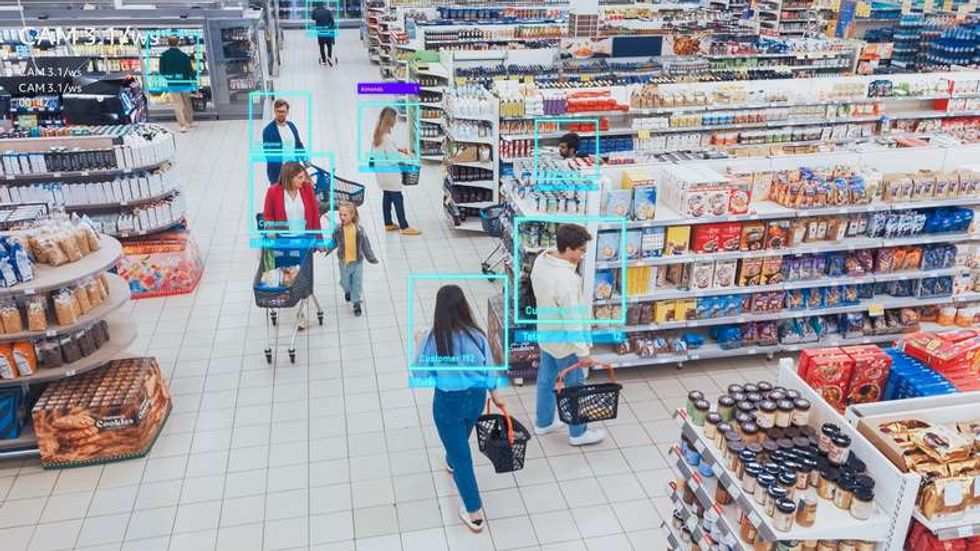
The UK’s leading civil liberties campaign group Big Brother Watch is ringing alarm bells due to rise in such cases.
Jasleen Chaggar, Legal and Policy Officer at Big Brother Watch, explained to Asian Trader, “By subjecting thousands of innocent members of the public to biometric identity checks, live facial recognition turns its shoppers into suspects by default and puts them at risk of being misidentified, blacklisted and wrongly accused of theft.
“It is completely disproportionate that customers should be confronted with intrusive surveillance when doing something as everyday as buying groceries.
“Far from protecting shop workers, live facial recognition will put them at increased risk of abuse and violence by requiring them to intervene.
"Grocery stores should prioritise the rights of its shoppers and staff over misplaced promises of security," Chaggar said.
AI at crossroads
One thing is clear, AI is here to stay and shows the way forward.
Convenience retailers across the UK are taking notes, making their minds from where to start off with.
Pontefract-based independent retailer Bobby Singh said, “We are still in the process of doing our due diligence, exploring how best to apply it and ensure AI works effectively for our particular setup.
“It certainly seems to be the way forward, and we’re keen to understand how AI can be implemented in a way that genuinely adds value and efficiency to what we do.”
For Cambridgeshire-based Nisa retailer Amit Puntambekar, the need lies in a better forecasting system.
“I think in the future EPOS providers will start using smarter APIs that will help with ordering and forecasting. That could be hugely beneficial for all retailers,” he told Asian Trader.
In Northamptonshire, retailer Vidur Pandya is also ready to dive in.
“I am more interested in consumer tracking to see how I can improve offering and range to customers and from crime prevention side from customers as well as from staff,” he said.
In Greater Manchester, retailer Mos Patel too is curious though he remains somewhat unconvinced by AI’s magic.
“We have tried asking AI for ordering advice, but it doesn’t really understand shopper behaviour in the current climate.
“With the challenges, we can’t commit to investing in new hardware or software purely because of the upfront cost.
“I do believe tools like digital shelf labels could help in the future, but with footfall already down, automating too much would just make existing staff less productive,” Mos told Asian Trader.
Early adopters like Selvaratnam, Vekaria and Razaq, meanwhile, are however upbeat about the results they are seeing.
Since using these tools, Selvaratnam has seen around a “25 per cent” reduction in stock wastage in his store, improved cash flow, and much faster reporting.
Vekaria echoed similar thoughts, “Overall, artificial intelligence has delivered tangible financial benefits through revenue growth, shrinkage reduction, labour savings, and operational efficiency.
“The smart audio network has elevated our promotional capabilities, while the security and analytical tools have strengthened the backbone of the business.
"It is not flawless, nothing in retail ever is, but it is a leap forward in how we protect our teams, engage customers, and grow sustainably.”
Razaq too is hopeful that AI will help cut costs in the future, not just in security but in other areas too.
“It has the potential to take over repetitive, time-consuming tasks like monitoring stock levels or tracking product performance, which could save on labour hours and reduce waste.
"It can also help us better understand what customers want and when, so we can order smarter and keep the right products on our shelves.
“I see it as something that won’t replace people but will make their jobs easier and more focused. For a local, independent store like ours, that kind of support can make a huge difference in staying efficient, competitive, and connected to our community,” Razaq told Asian Trader.
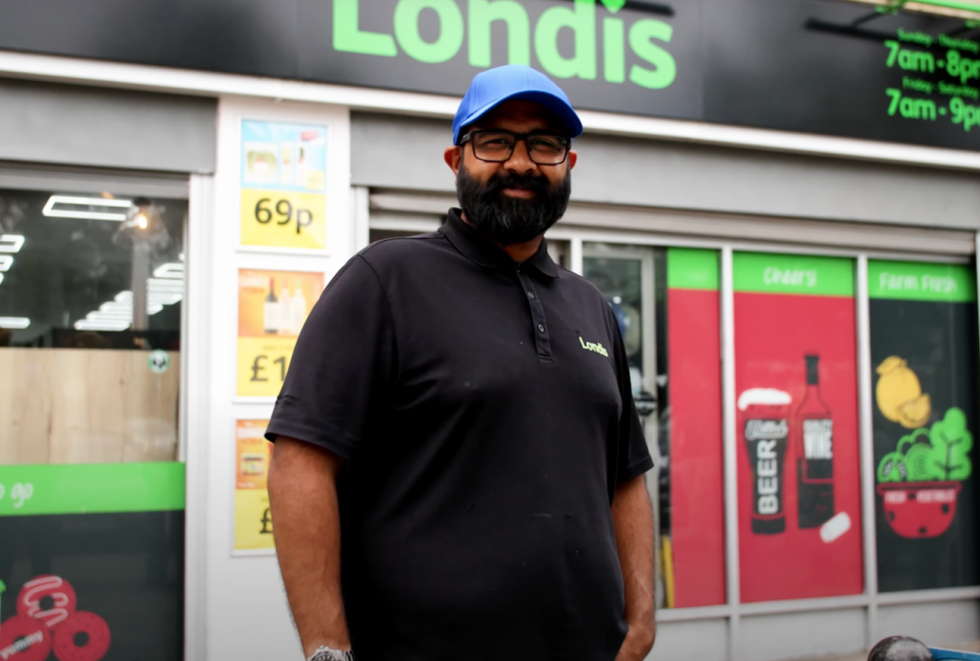
Nishi also has high hopes for what AI can accomplish for his generational family business.
“I would like to see some innovation to cut down energy costs like fridge temperature controllers, for age verification.
"The sky is the limit if you start thinking about it. But AI should be more about saving money rather than being an added cost.
“However, I don't want to leave everything on AI; people still want the personal touch,” Nishi concluded.
It is evident that AI may soon predict our next purchase, price it perfectly and stop it being stolen. Time will only tell whether it will be the next evolutionary step in retail or a costly gamble.

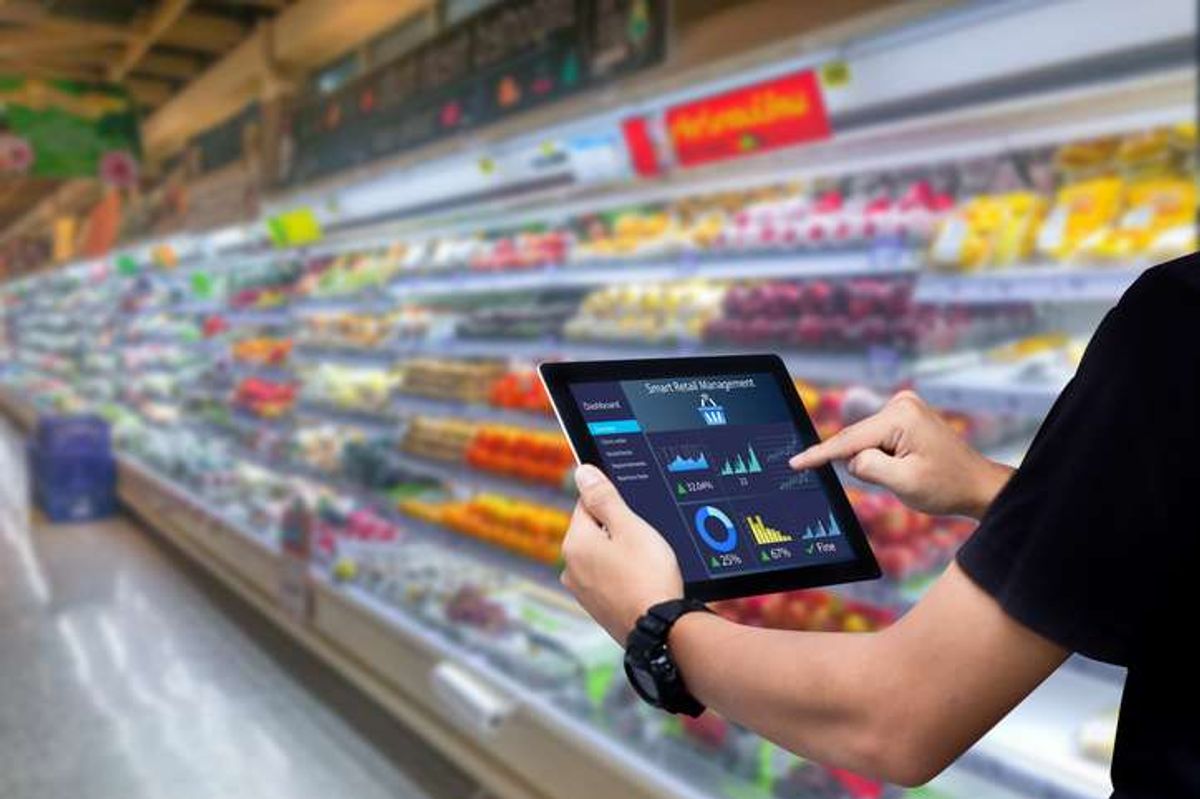

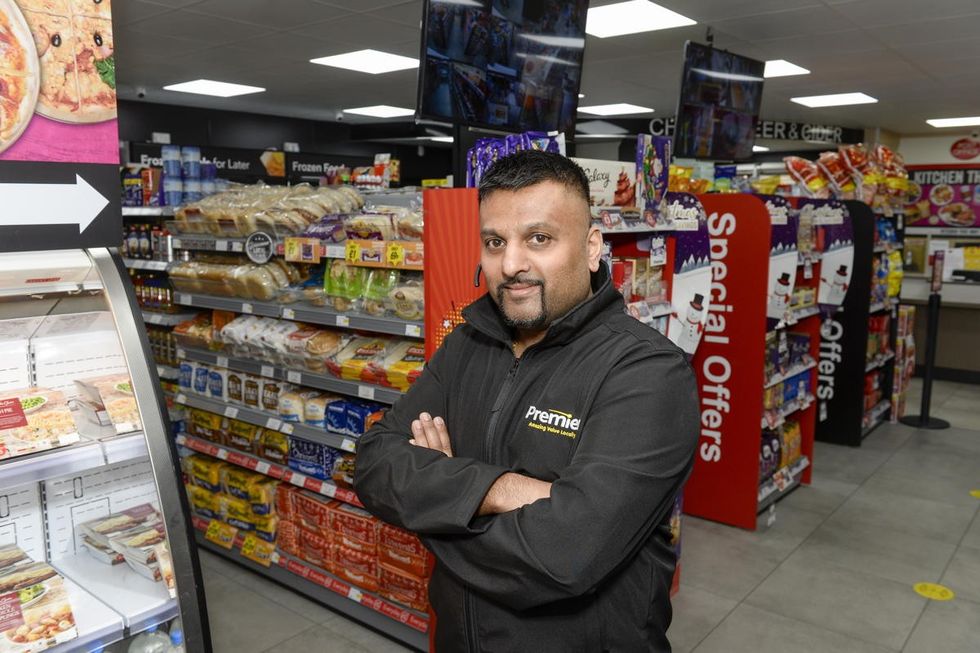 Mos Patel
Mos Patel